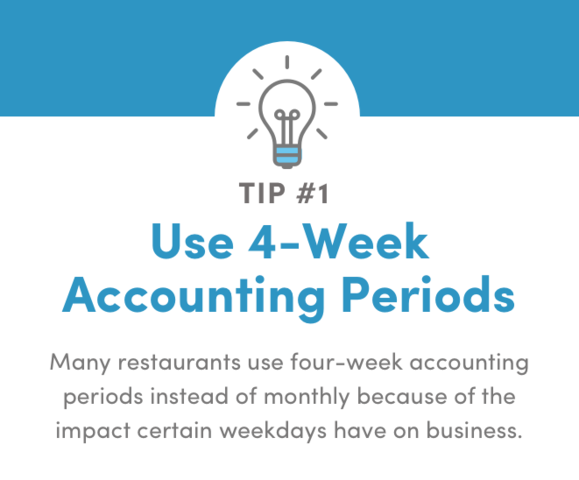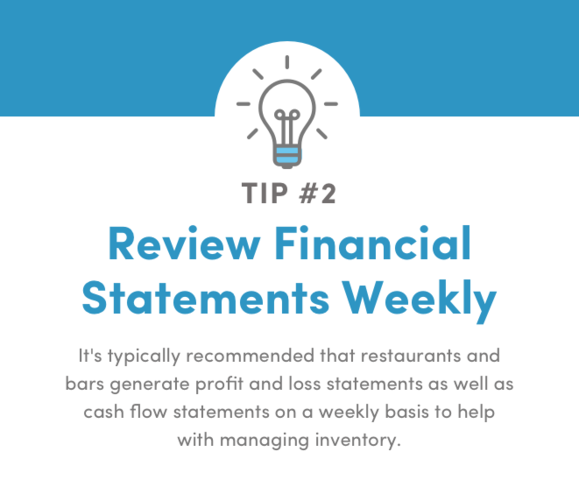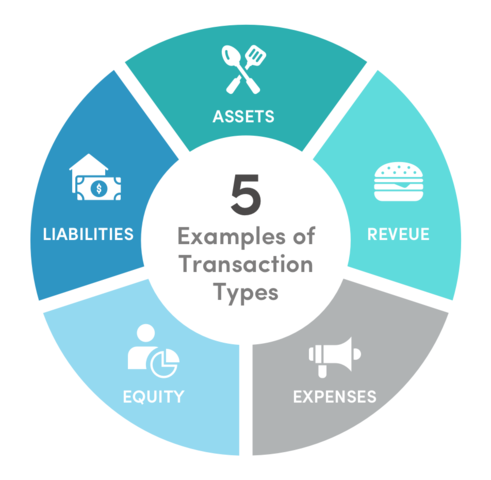Written by: Jacob Dayan
Owning a bar or restaurant is an exciting way to pursue your passion and create an independent income. That said, running a restaurant or bar is fast-paced, demanding, and full of challenges that require thinking on your toes. One of those challenges should not be your accounting.
For many small business owners, including those with their own bars and restaurants, taking on accounting is a big undertaking—from tracking profits and losses and managing food and labor costs to figuring out how to grow in such a competitive industry— and one with significant risks at that. When you consider all the moving parts involved in restaurant expenses as well as the complexity of bookkeeping and accounting processes, it’s no wonder many individuals struggle or even fail to maintain proper restaurant accounting.
However, that doesn’t have to be the case with your business. We’ve broken down the basics of restaurant accounting and bookkeeping to help you keep your food and beverage business on-track. Read our complete guide to accounting for bars and restaurants, or skip to the section that answers your question with these helpful jump links:
While accurate financial reporting is essential for every business’s success, bars and restaurants rely heavily on historical information and current records for making daily business decisions as well as forecasting. While restaurants typically have more complex accounting systems because food is the primary driver of their business, many of the same principles can be applied to accounting for bars.
The hospitality industry is notoriously competitive and challenging, and among those challenges are those related to money management and accounting. Before you can optimize your accounting process, you should have an understanding of these challenges so you can find ways to avoid them. Some of the most prominent accounting problems restaurant owners face include:

If you’re struggling with these same issues, it’s no reflection of your restaurant or business skills, but it does show how complex accounting can be and may be a sign that you need professional help. If you’re ready to say goodbye to these issues and the headache that comes with doing your own accounting, we have you covered with restaurant bookkeeping and accounting services.
Still deciding what to do? Keep reading to learn more about restaurant bookkeeping and what we can do for you.
There are certain factors specific to bars and restaurants (like those above) that can affect accounting processes, which is why there are special considerations to take into account to properly maintain your restaurant’s accounting.
Based on the nuances of the food and beverage industry, here are some restaurant accounting and bookkeeping tips you should follow:
These tips are tailored to the restaurant industry, but there’s plenty more you need to understand about accounting processes. For a more general introduction to the basics of accounting, read our post on small business accounting tips.

While they are often used interchangeably, there are actually differences between accounting and bookkeeping. They are related because bookkeeping lays the groundwork for accounting, but these processes serve different functions.
Bookkeeping is more of the administrative side of your restaurant’s finances and includes recording and organizing transactions, maintaining documentation, generating your financial statements, and sometimes overseeing payroll. On the other hand, accounting is more of the big-picture side of your finances, including analyzing your finances, providing advice, as well as helping with financial planning and tax filing. They’re both essential to the financial health of your business.

Bookkeeping for bars and restaurants differs from other types of businesses in several ways:
Keeping these nuances in mind when preparing your records will help you in the long run.

While we’re focused on restaurant bookkeeping, it’s important to cover the chart of accounts. The chart of accounts is a means to organize your transactions, which is then used to generate your business’s financial statements. The chart of accounts divides transactions up into several major categories, including:
Depending on the complexity of your business, these categories are typically broken down into more detailed subcategories.
Now that you have a better understanding of the special requirements for how to maintain restaurant accounts, you may be wondering if all the extra work of making sure you get it right is necessary. That’s easy, yes it is, and we’ll explain why.
Accounting is an essential function of proper business management in any industry. However, as we mentioned, with the volatility of the food and beverage industry, accounting for restaurants and bars plays an especially important role in creating financial stability. Here are some of the most notable ways that accounting impacts your restaurant’s financial health:
Above and beyond the success of your business, keeping up your bookkeeping and having accurate accounting is required by the IRS. If you fail to do so, you may be faced with an audit, expenses, and even the potential seizure of your business if taxes aren’t being paid correctly.

As a small business owner, you may be used to handling the high-level responsibilities of your restaurant or bar yourself. However, without a financial background or a thorough knowledge of accounting practices, it can be exceptionally difficult to keep your books up-to-date and your financial activity correctly accounted for.
When you first open your restaurant, your expenses and revenue may be fairly simple. However, even in the early stages, money mismanagement can have serious consequences—including restaurant failure due to running out of money.
As your business grows, so will the complexity of your accounting systems—and usually, that happens pretty quickly. To prevent you from falling behind on your financial responsibilities, it may be in your best interest to bring someone on to handle your bookkeeping and accounting for you. After all, your restaurant’s success should be your top priority.

While a restaurant might not seem like the most likely place to need an accountant, you might be surprised how much of an asset they can be to your team. If you are even slightly unsure of whether your accounting is being done correctly, it’s time to work with a professional. While you can use accounting software or hiring individual bookkeepers and accountants, you could use FinancePal instead, which simplifies all aspects of your business finances in one, easy-to-use solution.
With FinancePal, you get more than just a single accountant or bookkeeper—you get a team of financial experts and access to the latest technology to ensure that your restaurant’s accounting and finances are in top order. In addition to our accounting and bookkeeping services, we also provide payroll help and tax preparation. With FinancePal, you get the whole package.
Here are some of the benefits of working with FinancePal:
Working with us means saying goodbye to the challenges of managing your restaurant’s accounting and less time huddled in your office crunching numbers. With our help, you’ll be able to spend more time focusing on refining your menu, perfecting new drink recipes, driving customer satisfaction initiatives, and other activities that grow your business.
Now that you have a better understanding of the basics of restaurant accounting and what makes this industry’s financials unique, you can take steps toward ensuring your business’s accounting is in order.
If you’re like many other restaurant owners who have their hands full with creating a culinary experience unlike any other, it can be hard to manage finances. Let FinancePal help make your dream a reality by handling your accounting and financial responsibilities for you. By taking it off your plate, you can focus on making your restaurant the talk of the town.
Contact us today to get started with your customized restaurant accounting services.

Jacob Dayan is a true Chicagoan, born and raised in the Windy City. After starting his career as a financial analyst in New York City, Jacob returned to Chicago and co-founded FinancePal in 2015. He graduated Magna Cum Laude from Mitchell Hamline School of Law, and is a licensed attorney in Illinois.
Jacob has crafted articles covering a variety of tax and finance topics, including resolution strategy, financial planning, and more. He has been featured in an array of publications, including Accounting Web, Yahoo, and Business2Community.

Nick Charveron is a licensed tax practitioner, Co-Founder & Partner of Community Tax, LLC. His Enrolled Agent designation is the highest tax credential offered by the U.S Department of Treasury, providing unrestricted practice rights before the IRS.
Read More
Jason Gabbard is a lawyer and the founder of JUSTLAW.

Andrew is an experienced CPA and has extensive executive leadership experience.
Discussed options for my business with Brian and he was very helpful in suggesting how best to handle it.
Contact us today to learn more about your free trial!
By entering your phone number and clicking the "Get Custom Quote" button, you provide your electronic signature and consent for FinancePal to contact you with information and offers at the phone number provided using an automated system, pre-recorded messages, and/or text messages. Consent is not required as a condition of purchase. Message and data rates may apply.
By entering your phone number and clicking the “Get Started” button, you provide your electronic signature and consent for FinancePal to contact you with information and offers at the phone number provided using an automated system, pre-recorded messages, and/or text messages. Consent is not required as a condition of purchase. Message and data rates may apply.
